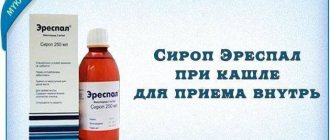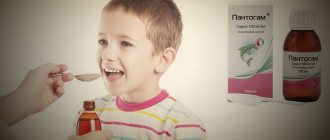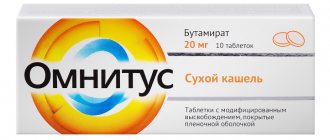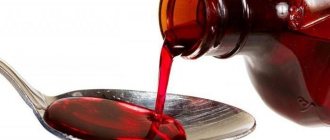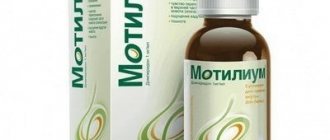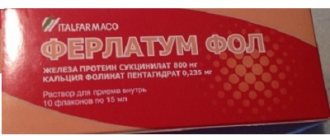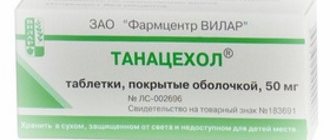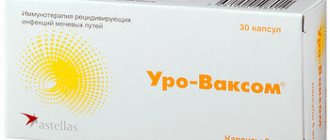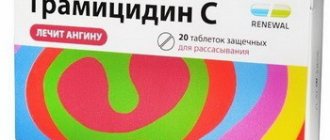It's no secret that coughing is a very dangerous phenomenon, signaling the presence of a cold or other viral diseases. There are simply a huge number of methods for treating it. In this case, both various medications and traditional medicine methods are widely used. It is very important to find the method that is ideal for you. In this article we will look at all the features of using the drug "Ascoril". Instructions, as well as indications, contraindications, analogues, opinions of patients and doctors, composition and release forms are of interest to many. Therefore, carefully read the information provided in order to arm yourself and protect yourself as much as possible. In this article you can find information about the use of Ascoril (use before or after meals, how long to take, what dosage to follow). So let's get started.
Possible contraindications for heart and vascular disease
Patients who have heart or vascular disease should take this drug with great caution, preferably under the supervision of a doctor.
This is primarily due to the content of salbutamol in the drug. If sudden pain appears in the chest or any other symptoms of exacerbation of heart disease, you should consult a doctor. The risk group includes patients with the following heart diseases:
- Ischemic heart disease.
- A person has arterial hypertension.
- The development of stenosis of the cardiac aorta, when there is a narrowing of its lumen.
- Heart rhythm disturbances.
In cases of shortness of breath, only a doctor can find out its origin. It may be the result of heart disease or pathologies of the respiratory canals. When taking the medicine, paradoxical bronchospasms may also occur, which are characterized by dry wheezing, pale skin and difficult sputum discharge.
According to reviews, the use of Ascoril rarely causes side symptoms.
Analogs
Ascoril has several equally effective analogues. The most popular include:
- Joset. The composition of the drug is similar to Ascoril. Joset smells nice and delicious. Release form: syrup. Manufacturer – India. Use exclusively for the treatment of children over 6 years of age. Pregnant women are required to use the medicine only under the supervision of a doctor; children under the specified age cannot be treated with it.
- Bronchosan. An effective substitute for Ascoril, containing ethyl alcohol. Available in the form of drops that speed up the expectoration process. It is allowed to use the drug from the age of three.
- Codelac Broncho. A combined mixture of various expectorants and substances that improve the condition of the bronchi. It is sold in the form of syrup, the intake of which significantly improves the condition of the patient’s body. After a short period of time after administration, swelling and nasal congestion decrease and disappear, lacrimation stops, and mucus begins to be coughed up. Used to treat children over 6 years of age.
- Cashnol. Cashnol is produced in the form of a pleasantly smelling fresh mint syrup. After taking the medicine, the bronchi expand, and the expectoration process becomes easier. Prohibited for use during pregnancy and breastfeeding, but approved for the treatment of children over 3 years old, which is very convenient.
- Ambroxol. Cheap syrup available from pharmacies without a prescription. Can be used during pregnancy and breastfeeding if there is a serious need for this. If there is an alternative, then it is better not to use the medicine, without fear of consequences; it can be used to treat children over 2 years old. When treating children younger than this age, it is better to use safer drugs.
Ascoril is used for various forms of bronchitis, pneumonia and even tuberculosis. It has a number of contraindications. A drug in the middle price category with a long shelf life, independent of the time the bottle is opened. It is recommended to keep it away from children and before use, carefully study not only the instructions, but also the annotations. If this particular name is not available in the pharmacy or the patient is allergic, it is permissible to use analogues of the drug for treatment. There are many of them, the therapeutic effect they provide is in no way inferior to Ascoril.
//www.youtube.com/watch?v=lYgnufPLKAs
Side effects and contraindications
Keep in mind! If the dosage is exceeded, the following side effects may occur:
- allergic skin rashes;
- sleep disturbances or nervous excitability;
- cardiopalmus;
- tremor of the limbs;
- lowering blood pressure;
- convulsions;
- diarrhea;
- headache;
- exacerbation of ulcers;
- nausea;
- Digestive problems.
Contraindications to Ascoril relate to different systems and organs, and in addition to intolerance to individual components of the drug, these include:
- hyperthyroidism;
- decompensated diabetes mellitus;
- exacerbation of stomach ulcers;
- heart rhythm disturbances;
- liver and kidney failure;
- low pressure;
- stomach bleeding;
- cardiac aortic stenosis;
- myocarditis.
The drug is completely contraindicated in pregnant and lactating women and is prescribed with caution during periods of remission of peptic ulcer disease.
"Ascoril": side effects on the human body
The use of this medicine can lead to negative reactions, so it should be taken with extreme caution. If you notice any side effects while using it, be sure to tell your doctor about it. Perhaps this medicine is not suitable for you, so the doctor will have to choose another remedy. So, let's look at what negative reactions the use of Ascoril leads to:
- From the central nervous system, dizziness, insomnia or, conversely, increased drowsiness often occur, convulsions and headaches appear. In rare cases, patients noticed tremors and increased nervous excitability.
- From the digestive system, nausea, diarrhea, vomiting, loss of appetite, and abdominal pain are most often observed. If there are ulcers in the stomach, the condition can worsen significantly. Sometimes side effects of Ascoril include changes in the chemical composition of the blood.
- The drug may also have an effect on the cardiovascular system. In some cases, this medication significantly lowered blood pressure and also increased heart rate.
- Those people who are intolerant to any components that make up this medicine complain of allergic reactions, which most often make themselves felt in the form of a rash on the skin, as well as itching and redness.
- Quite often, when using the medicine in people, the urine becomes pinkish. However, this phenomenon is considered normal, so you should not worry too much if such a phenomenon occurs.
Ascoril instructions for use
When calculating the dosage of Ascoril syrup, the doctor should focus on the age of the child. The drug should be prescribed to children under 1 year of age on an individual basis.
- For children from 1 year to 6 years old, the recommended dosage is 5 ml, which corresponds to one teaspoon, and the daily dosage of the medicine should be 15 ml.
- Children aged 6 to 12 years are allowed to give no more than 50 ml, which corresponds to 1-2 teaspoons. Dosage regimen: 3 times a day.
- For children over 12 years of age, a dosage of 10 ml is prescribed, which corresponds to 2 teaspoons. They need to be taken 3 times a day.
The course of taking Ascoril syrup for children cannot last more than 5–7 days. Otherwise, it will not be possible to achieve a therapeutic effect from the drug. Moreover, unwanted symptoms may occur. Therefore, you need to carefully monitor the child’s condition during this period. If there are no significant improvements, then you need to consult a doctor about this.
It is recommended to take Ascoril (tablets and syrup) with plenty of water. This will speed up the effect of the medicine.
If a dry cough was caused by pneumonia or bronchitis, then to treat it, the doctor may prescribe Ascoril syrup in combination with antibiotics.
Treatment of laryngitis
A slightly different treatment tactic is chosen for laryngitis.
This disease is accompanied by inflammation of the larynx, due to which it narrows, the child experiences pain, difficulty in inhaling and exhaling, and swallowing. But you should not immediately start treatment with a mucolytic, otherwise you will only make things worse. The fact is that the size of the larynx is smaller than usual, and it will not be able to remove large amounts of mucus. Therefore, the first thing that needs to be done is to eliminate the swelling, and for this they take anti-inflammatory and antibacterial drugs. Only after their effect can you start taking cough syrup or tablets.
Do not forget that you should take mucolytics only as prescribed by your doctor. This recommendation applies to all diseases, including bronchial asthma. Considering the danger that this disease of an allergic nature poses to the body, it can only be treated in accordance with clinical protocols.
You can start taking Ascoril syrup or tablets only on the recommendation of your doctor. Even if the instructions for use indicate the condition that a sick child has, this is still not enough to start treatment with this medicine.
Undesirable effects
If you refer to the instructions for use, they also indicate a number of side effects that can result from taking Ascoril syrup:
- tachycardia;
- deterioration of blood pressure;
- loose stools;
- nausea;
- pain in the abdominal area;
- increased excitability of the nervous system;
- headache;
- seizure activity;
- bad dream.
However, the symptoms listed above occur in rare cases, as confirmed by reviews from doctors and parents. If laryngitis is treated with Ascoril, the patient may sometimes experience side effects such as laryngospasm, fainting, and respiratory arrest. However, there is no need to worry ahead of time: if you give the drug to your child, strictly following the recommendations of the attending physician and without violating the dosage, you will certainly be able to avoid such consequences.
Analogs of the drug "Ascoril"
Today there are a huge number of different drugs that have substitutes. The drug "Ascoril" is no exception. Typically, analogues are prescribed by doctors in cases where for some reason the patient cannot take this medicine. Under no circumstances should you self-medicate or prescribe substitutes yourself. Do not forget that some types of medications may simply not be suitable for you, so using them will only harm your health.
So, let’s look at what analogs doctors most often prescribe to their patients: “Lazolvan”, “Doctor MOM”, “Pectusin”, “Equatol”, “Kashnol”, “Licorice root” and many others.
Of course, all of the above substitutes are very effective and capable of providing the necessary therapeutic effect on the human body. However, their improper use can cause significant harm to health. Therefore, only a doctor can prescribe the most suitable medicine for you.
Contraindications for use
Ascoril should not be used uncontrollably. Salbutamol and bromhexine easily cross the placenta, so taking the drug during pregnancy is prohibited. Also, Ascoril should not be used while breastfeeding. Contraindications for use of the drug:
- heart rhythm disturbances;
- arterial hypertension;
- cardiac ischemia;
- children up to one year of age (for syrup) and up to 6 years (in tablets);
- stage of exacerbation of peptic ulcer disease;
- hormonal pathologies;
- narrowing of the lumen of the cardiac aorta (aortic stenosis);
- glaucoma;
- liver failure;
- stomach bleeding;
- diabetes mellitus in decompensated form;
- myocarditis;
- individual intolerance to components;
- renal failure.
People with cardiovascular diseases should take Ascoril very carefully, since the drug contains salbutamol. If pain suddenly appears in the chest, or other negative symptoms occur, you should stop taking the medicine and immediately consult a doctor for an analogue
Contraindications for use with other medications:
| Diuretics | Ascoril is not recommended to be taken simultaneously with the diuretics Lasix, Veroshpiron and Furosemide. These combinations may lead to severe hypokalemia and arrhythmia. |
| Medicines containing codeine | It depresses the cough center. This is accompanied by stagnation of sputum and prevents its discharge. Any other drugs that can cause the same disorders (for example, Sinekod) are also contraindicated. |
| Corticosteroids | When using Ascoril for diabetes mellitus, ketoacidosis may develop. This is due to the fact that salbutamol promotes reverse metabolic processes. In particular, blood sugar increases. When taking corticosteroids and Ascoril simultaneously, ketoacytosis is further aggravated. |
| Bromhexine | Helps to thin the pulmonary barrier, as a result of which antibiotics (Doxycillin, Cefuroxime, Amoxacillin and Macropen) easily penetrate through it. As a result, the concentration of these substances in the bronchi greatly increases. |
| Drugs of the same group with salbutamol | Ventolin, Berotek, Severent, etc. enhance the effect of the active substance, which provokes side effects. |
It is not recommended to take Ascoril with an alkaline drink (for example, mineral water, milk and soda).
This significantly reduces the good healing effect. Ascoril is not recommended for use with monoamine oxidase inhibitors (Nialamide, Pirlindol, etc.). Ascoril is incompatible with alcohol.
The drug contains the active substance guaifenesin. It enhances the effect of ethyl alcohol and drugs that depress the nervous system. The combination with propylene glycol has a negative effect on the liver.
Contraindications
Ascoril has a certain number of contraindications. The drug should not be used if you are hypersensitive to its components. The syrup should not be used by children under one year of age, and the tablets by children under six years of age. Other contraindications:
- heart defects;
- pregnancy and lactation;
- myocarditis;
- arterial hypertension;
- tachyarrhythmia;
- cardiovascular diseases (arrhythmias, hypertension, aortic stenosis);
- stomach bleeding;
- glaucoma (high intraocular pressure);
- hormonal diseases (hyperthyroidism);
- inflammatory processes in the stomach;
- decompensated diabetes mellitus in any of its forms;
- stomach and intestinal ulcers during exacerbation;
- thyrotoxicosis;
- renal and liver failure.
Ascoril is not used if individual intolerance to the drug is observed. Do not use simultaneously with beta blockers.
Composition of the drug
The chemical composition of the drug includes active substances, the interaction of which enhances the pharmacological effect of each. The main components of Ascoril:
- Guaifenesin stimulates cilia, which clear the airways. This helps thin the mucus and increases its volume.
- Salbutamol sulfate relaxes the smooth muscles of the bronchi, improves their patency and increases the lumens. Promotes rapid expansion for a long time. Salbutamol sulfate relieves asthma attacks, which are characteristic of bronchial asthma.
- Menthol, which is contained in the syrup, has an antispasmodic effect and relaxes the smooth muscles of the bronchi. The substance eliminates cough and has an antiseptic effect.
- Bromhexine hydrochloride increases the amount of secretion and reduces its viscosity. The active substance simultaneously promotes the activation of the ciliated epithelium, thereby accelerating the removal of sputum from the bronchi.
Composition of Ascoril syrup
10 ml contains 200 mg of guaifenesin, 2 mg of salbutamol, 4 mg of bromhexine and 1 mg of menthol. Also included are auxiliary aids:
- citric acid monohydrate;
- sucrose;
- glycerol;
- purified water;
- propylene glycol;
- sunset yellow dye;
- sodium benzoate;
- black currant flavor;
- sorbitol;
- pineapple flavor.
Composition of tablets
One Ascoril tablet contains 100 mg of guaifenesin, 2 mg of salbutamol and 8 mg of bromhexine. Also included are auxiliary components:
- magnesium stearate;
- purified talc;
- methyl parahydroxybenzoate;
- corn starch;
- propyl parahydroxybenzoate;
- colloidal silicon dioxide.
The syrup has a slightly noticeable bitterness due to fragrances. The liquid does not contain herbal components, so it is used only as directed by a doctor.
Particular care should be taken when giving the drug to children.
Pharmacodynamics
The drug contains 3 active components. Salbutamol is a bronchodilator that stimulates beta receptors in the bronchi, myometrium and blood vessels. Eliminates and prevents spasms, reduces airway resistance and increases lung capacity. Salbutamol does not lower blood pressure and does not dilate the coronary arteries.
Guaifenesin is a mucolytic agent that lowers the surface tension of the bronchi. At the same time, it stimulates mucosal cells that produce neutral polysaccharides. Liquefies mucus and makes it easier to remove. Promotes the transition of a cough to a productive one.
Bromhexine is a mucolytic agent that has an antitussive and expectorant effect. The component increases the serousness of bronchial secretions, thins sputum and improves its removal, and activates the ciliated epithelium.
pharmachologic effect
Ascoril is an effective mixture of salbutamol, bromhexine and guaifenesin. Its pharmacological effect on the body depends on the degree of absorption of the listed components by a particular patient. Most often, asthma, bronchitis and simple coughs that occur with a cold are treated with the help of syrup. The drug allows you to expectorate and remove mucus from the bronchi and lungs, reduce the strength of spasms, reduce resistance in the respiratory tract, increase the vitality of the lungs and dilate the coronary arteries (there is no negative effect on blood pressure levels, it remains normal). Due to the presence of guaifenesin in Ascoril, it is possible to make the cough productive, thin the sputum and have a positive effect on the ciliary apparatus of the bronchi.
Pharmacodynamic properties
The pharmacodynamic qualities of the medicine depend on the quantity and quality of salbutamol, bromhexine and guaifenesin present in it.
Salbutamol stimulates beta receptors and has a positive effect not only on the bronchi themselves, but also on the myometrium and blood vessels. Under the influence of this substance, the intensity of lung spasms decreases, they increase in size, and it becomes easier to breathe deeply.
Guaifenesin improves bronchial function and stimulates mucosal cells that produce neutral polysaccharides. The sputum becomes more liquid, and this facilitates its faster and easier removal. The cough becomes productive.
Bromhexine is also a mucolytic substance. The patient who takes it coughs up sputum better, the ciliated epithelium is activated, and the painful cough gradually disappears.
Pharmacokinetic properties
Salbutamol, bromhexine and guaifenesin are quickly and well absorbed by the body. Thus, salbutamol is able to penetrate the placenta, approximately 10% of it comes into contact with plasma proteins. Processed by the liver and intestines, it breaks down to the fourth ether sulfate and is eliminated by the kidneys, 3 days after consumption. In this case, the kidneys excrete only 80% of the substance, 4% is excreted in the bile, and the remaining 16% is absorbed. When taken orally, no more than 50% is absorbed, but the inclusion of salbutamol in the syrup can significantly increase the percentage of absorption.
Complete absorption of guaifenesin is achieved half an hour after administration. In this case, the liver metabolizes 60% of its total amount, and elimination occurs through the kidneys and lungs (removed from the body along with sputum during expectoration).
99% of bromhexine is absorbed by the body immediately after taking the medicine
Its bioavailability is low, but the substance is able to penetrate the placenta, so it is taken with caution during pregnancy. After bromhexine is processed by the liver, it is converted into active ambroxol and excreted by the kidneys
Use by pregnant and lactating women
Today, “Ascoril” for cough is very popular. The drug is considered safe, as it can be used by children, and is very effective. However, be aware that the active substances included in the medication are able to penetrate the placenta, and therefore can cause irreparable harm to the unborn baby.
Also, the product is not recommended for use by women during lactation. However, in some cases, doctors still make exceptions. During the course of treatment, a woman should stop feeding her baby breast milk. It is also recommended to avoid this procedure for several days after treatment.
Askoril for children
For children under twelve years of age, syrup is prescribed. The optimal dose is a teaspoon 2-3 times a day (depending on the diagnosis and severity of the disease). At the discretion of the doctor, the prescription of tablets is allowed, but the maximum dosage should not exceed 1/2 tablet per day.
Children over 12 years of age are prescribed Ascoril tablets. Dosage – one or two tablets per day (depending on the existing disease and its severity). If you have difficulty swallowing, syrup is prescribed, 2 teaspoons three times a day.
The duration of therapy is determined by the attending physician individually. However, children should not take the syrup for more than 7 days.
Expiration dates and storage conditions
The place where the drug is supposed to be stored must be dry, away from sunlight, and well ventilated. It should also be out of the reach of children. Storage temperature – up to 25 degrees Celsius.
The shelf life of the drug Ascoril is 2 years from the date of release. After the packaging has been sealed, the product can be used until the expiration date.
In pharmacies, Ascoril is available without a prescription. Before using it, it is recommended to visit a medical clinic and consult a doctor.
Indications and contraindications
If you look at the reviews and instructions for use of the drug, the main conditions for which it is recommended to take this drug are dry cough, as well as inflammatory processes of the upper respiratory tract, diseases of the bronchi and lungs. Most often, Ascoril syrup is prescribed for the treatment of the following diseases in children:
- pulmonary tuberculosis;
- pneumoconiosis;
- emphysema;
- bronchial asthma;
- pneumonia;
- laryngitis;
- other inflammatory diseases of the upper respiratory tract.
The therapeutic effect of Ascoril syrup is directly related to the active ingredients that are present in this medicine. Each substance individually has an effect on the child’s body, and in general their therapeutic effect is enhanced, which makes it possible to achieve a more significant positive result after 2 days from the start of treatment.
The first results from taking the drug can be seen after half an hour, and the achieved effect lasts for about 8 hours. One of the advantages of Ascoril syrup is its high bioavailability - most of the medicine is absorbed by the body.
Salbutamol is an active component that promotes bronchial dilation. It is necessary in the composition of the drug for the treatment of bronchial asthma. But since it is presented in the syrup along with other components, it has a stronger effect on phlegm and accelerates its removal from the bronchi.
Bromhexine has a positive effect due to its ability to activate the work of cells responsible for the production of secretions. This helps thin the mucus. Due to the presence of this component in the syrup, the cilia are activated, due to which the mucus quickly begins to move up the respiratory tract. Ultimately, all this improves expectoration during dry cough.
Guaifenesin has a laxative effect, which allows it to relieve tension in the bronchi. It, like bromhexine, improves the activity of secretory cells, which also contributes to the thinning of sputum.
Although the description states that Ascoril syrup is a drug that can be used to treat children almost from birth, before starting treatment it would not hurt to carefully study the instructions, in particular, contraindications for use:
- high blood pressure;
- stomach bleeding;
- exacerbation of peptic ulcer;
- disorders of the kidneys and liver;
- glaucoma;
- increased production of thyroid hormones;
- diabetes mellitus in the stage of decompensation;
- inflammation of heart tissue;
- heart defects;
- tachycardia and other heart failures;
- hypersensitivity to the constituent components of the drug.
Although Ascoril is an inexpensive drug, it is sold in a package with instructions. According to reviews from parents, many people like the effect provided by taking the syrup. However, before starting treatment, it would not hurt to consult a doctor about the advisability of its use. It is also necessary to take into account that Ascoril is prescribed as a means of symptomatic treatment, while it does not have bactericidal properties, and therefore is not able to eliminate the cause of the pathology.
You need to be especially careful when prescribing the drug to children under 1 year of age. This is best done with the approval of your pediatrician. Please note that the dosage should only be determined by a doctor on an individual basis. Therefore, you should not be surprised that it may differ from what is indicated in the instructions for use.
Opinions of patients and doctors
According to reviews from doctors, “Ascoril” can cope well with any type of cough. This is especially true for dry ones. The active components of the medicine very quickly dilute sputum and accelerate its removal from the body. According to doctors, good results can be seen already on the third or fourth day of using the medicine. However, it is better not to stop there and extend the treatment for another couple of days.
According to patients, the drug copes well with its intended purpose. “Ascoril” completely relieves cough within a few days. Moreover, the product is suitable for use by both children and adults. The main thing is to correctly calculate the dosage and follow all recommendations for use. The product has two release forms, so everyone can choose the one that is right for them.
The syrup is very easy for children to take, as it has a rather pleasant taste and aroma. However, some patients complain that the use of this medicine causes side effects such as low blood pressure, headaches, and increased drowsiness. Therefore, if possible, such patients are recommended to choose another drug.
Interaction with other drugs
Ascoril is prohibited from being used together with other medications containing salbutamol, as well as Berodual, Clenbuterol and others.
Despite the increased therapeutic effect, this combination may increase side effects. The combined use of Ascoril with glucocorticoids (Diprospan, Prednisolone, etc.) and diuretics (Furosemide, Veroshpiron) leads to a decrease in potassium in the circulatory system.
The simultaneous use of Ascoril and cough suppressants containing codeine may make it difficult to remove mucus and worsen the patient's well-being.
It is prohibited to use the medication in conjunction with MAO antidepressants, as well as non-selective beta blockers.
The bromhexine contained in the drug promotes the penetration of certain antibacterial agents (Cephalexin, Erythromycin) into the lung tissue.
Interactions with drugs
An increased likelihood of adverse reactions occurs when Ascoril is taken together with drugs of the same group as salbutamol. Ventolin, Berotec, Clenbuterol, Partusisten and Berodual can enhance the effect of the drug.
It is not recommended to use it together with drugs that are monoamine oxidase inhibitors. These include: Pirlindol, Iproniazid, Moclobemide, Nialamid, etc.
A decrease in the concentration and content of potassium in the blood is caused by diuretics, for example, Lasix, Veroshpiron, Furosemide. Simultaneous use with glucocorticosteroids Nasonex, Flixonase, Disprospan leads to the same consequences.
Due to the presence of Bromhexedine, the use of antibiotics should be limited. Macropen and Cefazolin are able to promote the rapid penetration of active substances into the lung tissue.
When taken with cough medicines, Ascoril changes their effect. Therefore, carefully read the composition of the purchased additional drugs. Ascoril interacts poorly with the substance codeine, which is often found in these drugs. Complications occur due to difficulty in liquefying and expectorating sputum.
Complex use with non-selective beta-adrenergic blockers is not recommended. The most popular drugs of this action that are incompatible with Ascoril include: Sotalex, Propranolol, Trazikor, Anaprilin, Korgard.
What effect does the drug have on the body?
According to the instructions, “Ascoril” contains several ideally selected active ingredients. The combination was compiled in such a way that the active ingredients could enhance each other’s effect. So, the active medications included in the composition can have the following effects on the human body:
- The bronchi consist of smooth muscles, which relax under the influence of active components, which means that spasms are gradually eliminated. At the same time, the blood vessels expand, which helps to increase the vital capacity of the lungs. The diameter of the paths responsible for air supply also expands significantly.
- The active components also promote active coughing and expectoration. The mucus in the respiratory organs begins to thin out significantly and is gradually eliminated from the body. As you know, the sputum that causes coughing is usually very viscous. The instructions for Ascoril explain that the active components included in the composition make sputum liquid enough so that it can quickly leave the body.
- The drug is also able to relax the bronchi and calm coughing attacks. The product has a good antibacterial effect.
The medicine begins to act very quickly. Within thirty minutes you can notice the first positive results.
Which remedy is better
When choosing a medicine for cough, the patient will be confused between the names
It is important to understand which drugs are more effective. To do this, you need to compare between popular means
Sinekod or Ascoril
To understand how effective Sinekod is, you need to take into account its strengths and weaknesses.
Advantages:
- effectiveness in the initial stages of disease development;
- pleasant taste;
- Possibility of use from two months of age;
- minimum side effects.
Sinecode is considered an effective remedy if taken in the initial stages of the disease. Quickly reduces the number of coughs, but does not remove phlegm from the lungs. Ascoril is a powerful drug that helps at different stages of the development of the disease.
Ambrobene or Ascoril
Ambrobene is a drug whose active element is ambroxol. It affects the properties of the drug.
Advantages:
- low cost;
- Highly effective for dry cough.
Flaws:
- narrow range of indications;
- ineffectiveness of the drug in advanced stages of the disease.
Ambrobene has a different effect on the body when compared with Ascoril. It thins mucus and removes it from the lungs and bronchi.
Ambrobene syrup
Erespal or Askoril
Erespal is a monodrug that contains only one active component.
Erespal:
- stops the inflammatory process;
- reduces the amount of mucus secreted;
- reduces swelling.
Erespal prevents the development and further course of inflammatory processes. It is considered a milder cough suppressant than Ascoril. Erespal can be combined with other medications.
Prospan or Askoril
Prospan is a product that contains herbal ingredients.
Advantages:
- kills pathogens;
- dilutes mucus and removes it from the body;
- combined with various medications;
- relieves spasms.
Flaws:
- short shelf life;
- high cost of the product.
Herbal components have a gentle effect on the patient's body. However, Propane does not have the proper effectiveness and speed of action in the development of serious diseases. Ascoril copes with unpleasant symptoms faster.
Syrup Prospan
Bromhexine or Ascoril
Bromhexine is considered an effective mucolytic agent that is well tolerated.
Advantages:
- drug safety;
- effectiveness in treating cough;
- low price.
Flaws:
- allowed for use only from 6 years of age;
- should not be taken during pregnancy;
- slow effect on the body.
Ascoril is more effective than Bromhexine. It stops cough faster and helps even in advanced stages.
Lazolvan or Askoril
The active component of Lazolvan is ambroxol. Available in different forms. Advantages:
- increased efficiency;
- Duration of treatment is 4 days.
Flaws:
- a large number of contraindications;
- should not be taken during pregnancy or problems with the kidneys or liver.
Lazolvan and Askoril are similar in their effects on the body. However, unlike the second drug, the first does not cause allergic reactions so often and is compatible with most medications.
Syrup Lazolvan
Possible negative manifestations when using Ascoril
In the vast majority of cases, the drug is well tolerated by patients. The following negative effects are occasionally possible, especially in cases of incorrect dosage:
- disturbance of sleep patterns, sometimes accompanied by seizures;
- increased excitability, nervousness;
- prolonged, persistent dizziness;
- sharp pain impulses in the head area;
- dyspeptic disorders;
- decreased blood pressure, increased heart rate;
- allergic reactions, darkening of urine.
Composition and release form
So, the presented expectorant combination remedy is used for colds, which are accompanied by cough and problematic sputum discharge. This drug is produced in tablets and syrup.
The tablets have a flat round shape. The package may contain ten or twenty tablets. The active ingredients are salbutamol, bromhexine hydrochloride and guaifenesin. And the excipients are microdoses of calcium hydrogen phosphate along with corn starch, methylparaben, propylparaben, purified talc, silicon dioxide and magnesium stearate.
The syrup, in addition to the main active ingredients, additionally contains menthol. And blackcurrant and pineapple flavors are included as additional auxiliary components. Reviews about Ascoril syrup are mostly positive.
Salbutamol sulfate acts on the smooth bronchial muscles, providing relaxation of this organ along with increasing the lumen and improving patency. With obstruction under the influence of salbutamol, rapid and at the same time prolonged dilation of the bronchi occurs. This active ingredient can relieve asthma attacks that accompany bronchial asthma.
Bromhexine hydrochloride, depending on the medicinal format (in one tablet - 8 milligrams, in 10 milliliters of syrup - 4 milligrams), increases the volume of secretion, reducing its viscosity and stimulating the activity of the ciliated epithelium. Thus, the evacuation of sputum from the bronchi is accelerated.
Guaifenesin takes part in the reflex stimulation of the secretion of the glands of the respiratory canals. This, in turn, leads to the dilution of sputum, and, in addition, to an increase in its volume. Menthol, which is part of the syrup, produces a weak antispasmodic effect and relaxes the bronchial muscles, helping to stop coughing and providing an antiseptic effect. The syrup includes plant materials, so it is used strictly according to doctor’s indications, especially for treating children.
Reviews of Ascoril are presented at the end of the article.
Instructions for use
The exact dosage of the drug is calculated by the doctor and depends, first of all, on the age of the patient:
- 1-6 years. Children from 1 year to 6 years are prescribed 1 tsp. (5 ml) three times a day.
- 6-12 years old. The dose depends on the disease, and since the child’s body is stronger at this age, instead of 3 tsp. your doctor may recommend taking as much as 6 tsp. in a day.
- 12 years and older. Teenagers and adults take 2 tsp. three times a day.
If there is a need to treat a child who has reached the required age, but is still drinking breast milk, then syrup is given during the periods between feedings. Treatment lasts 5-7 days, no more. If there is a need for prolonged use, then a short break is taken, after which the use of a cough medicine such as Ascoril is continued in the same amount. Ascoril can only be given to children over 6 years of age.
Drug interactions
Mixed with Theophylline and beta 2-adrenergic substances, non-selective B-adrenergic receptor blockers (Propranolol), salbutamol can cause serious side effects. For the same reason, syrup should not be used together with cough suppressants containing codeine. The simultaneous use of several drugs has the opposite effect to what is indicated in the instructions. Instead of the expected release of sputum, the patient will feel that he is literally suffocating. Due to the accumulation in the body of a large number of substances that interact poorly with each other, the release of sputum and the expectoration process will slow down.
When using Ascoril, it is important to remember that the bromhexine present in its composition accelerates the process of penetration of antibiotics into the lungs, which has a beneficial effect on the treatment of pneumonia and bronchitis. Along with Ascoril, antibiotics such as Cephalexin, Oxytetracycline and Erythromycin can be used
At the same time, the drug is not recommended for patients undergoing treatment with MAO inhibitors. The effect of salbutamol is enhanced by corticosteroids and diuretics. At the same time, their presence in the body causes salbutamol to have a negative effect on the amount of potassium in the plasma. It is decreasing.
If there is a need to take alkaline-containing drugs, then it is better to abstain from Ascoril at this time, replacing this drug with a suitable analogue.
Indications for use
Ascoril is not prescribed for a viral infection or a common cold. The drug has strict indications:
- bronchial asthma and periods of its exacerbation;
- tuberculosis, both open and closed forms;
- whooping cough;
- prolonged and acute tracheobronchitis;
- pneumoconiosis;
- obstructive chronic bronchitis;
- pleurisy;
- bronchitis;
- pneumonia;
- cystic fibrosis;
- emphysema;
- bronchopneumonia.
Since strict clinical safety trials have not been conducted during pregnancy and breastfeeding, use is possible only in extreme cases, when the benefit to the woman is much higher than the risk to the fetus. If you are breastfeeding, you should not take the medicine or you should stop breastfeeding for a while. It can be started again after two days after the last use of the medicine.
